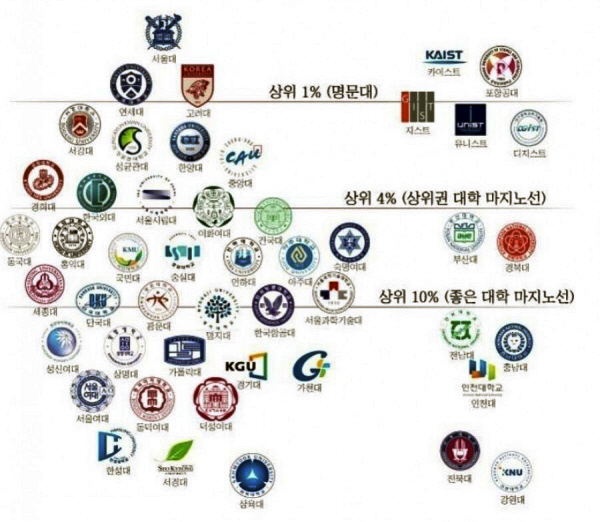In relation to middle and high school students' advancement, they must collect information on their field of interest, receive counseling, select a department, and prepare consistently in order to select a department that suits their talents, interests, interests, passion, and long-term goals. Let’s find out if radiology suits my aptitude and goals.
My career choice,
which department should I choose?
◆ Radiology ◆
radiology
Ⅰ. A student like this should choose radiology...
Radiology is an academic field related to the theory, application, safety and health of radiation. In order to be interested and successful in radiology, it is important to have the following talent, aptitude, passion, and interest.
1. Interest and understanding of science and medicine
Radiology is based on scientific theory and application. Students must have a deep interest and basic understanding of science and medicine. An understanding of the nature of radiation, operating principles of radiation equipment, medical imaging, etc. is required.
2. Logical thinking and problem-solving skills
Radiology must solve complex problems. Students must have logical thinking and problem-solving skills. You must be able to solve problems by considering safety and health management of radiation, operation and maintenance of imaging diagnosis and treatment equipment, and the safety of patients and workers exposed to radiation.
3. Observation and detailed work ability
Radiology is a field that requires precise work and observation. Students must have detailed work skills and observation skills. In radiological imaging, images must be interpreted accurately, and in radiotherapy, radiation must be accurately administered and controlled to tissues.
4. Medical ethics and communication skills
Radiology is closely related to the medical field. Students must have an understanding of medical ethics and the ability to communicate with patients. Because diagnosis and treatment are performed through radiological imaging, patient safety and comfort must be considered top priority.
5. Continuous learning and updates
Radiology is a field that requires continuous learning and updating with the latest technology. Students must have the ability to identify and learn the latest research trends and technological developments. Additionally, you must always be aware of and updated with regulations and guidelines related to radiation safety.
Developing these traits and abilities is important for success in radiology. Of course, individual interests and passions play the most important role. Please consider whether you can challenge and grow in radiology based on your interests and passion.
Ⅱ. Radiology Overview
Have you ever seen the shape of the bones in our body through an X-ray image? The Department of Radiology seeks to develop professional talent with the necessary skills and mindset to be part of the medical team. The Department of Radiology is a place to learn medical technology for accurate diagnosis of diseases and treatment of malignant tumors using cutting-edge medical equipment.
Ⅲ. Radiology-related occupations
Radiologist, public health official, non-destructive inspector, Occupational Safety and Health Agency
Ⅳ. Radiology-related qualifications
Radiation technician license, radiation handling supervisor license
Ⅴ. Radiology characteristics
Radiology is widely used in disease diagnosis and cancer treatment, and is a discipline that is rapidly developing along with the advancement of medical technology. Using a variety of cutting-edge equipment, you can learn handling techniques such as X-rays, radium radiation, and ultrasound, as well as inspection principles and inspection procedures, and apply them immediately at the hospital site.
Ⅵ. Field of entry after graduating from radiology
● Businesses and industries
Hospitals, non-destructive testing companies, construction companies, etc.
● Government and public institutions
Public institutions related to health and medicine, such as Korea Health Industry Development Institute and Korea Foundation for International Health and Medical Services
VII. Main subjects studied
● Introduction to Radiology
By establishing the basic concepts of the background of medicine using radiation, the development process of medical technology, the role of radiation-related hospital departments and radiologists, as well as the physical properties of radiation, the field of radiology, radiation oncology treatment, and nuclear medicine examination, the overall field of radiation Learn the flow.
● Human anatomy and physiology
By understanding the morphological characteristics of the human body from the basics by system, it is possible to distinguish the anatomical names for each cell tissue and organ, and by understanding the functions and physiological characteristics of organ tissues and cells, it applies and contributes to diagnosis and treatment using radiation. Let us do it.
● Radiation physics
Learn about the basics of physics and basic theories of physical phenomena, radiation generation, and interaction between radiation and materials throughout the medical radiology field.
● Radiobiology
Understand the effects of radiation on living organisms, and understand the biological effects (effects on molecules, cells, tissues, and organisms) and radiation damage that occur when exposed to radiation inside and outside the body and when radioactive isotopes are administered.
● Medical imaging equipment management practice
Understand the structure and operating principles of diagnostic Acquire it.

